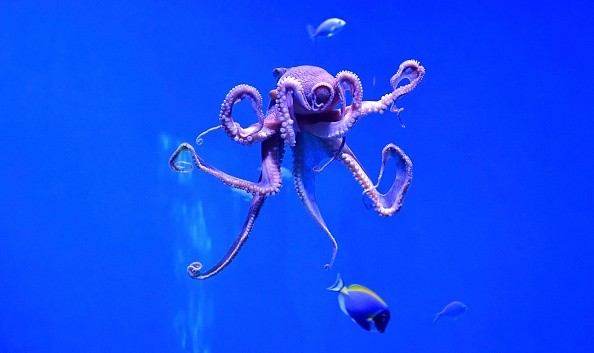Octopuses can deal with complex puzzles and show different preferences, individual persons, though whether they and other animals and invertebrates have emotional responses is a hotly debated topic that, according to a York University expert in animal minds, could shake things up humans' moral decision-making.
Most countries do not acknowledge invertebrates like octopuses, crabs, lobsters, and crayfish as sentient beings capable of feeling pain, but the United Kingdom is considering amending its animal welfare legislative changes to do so.
Invertebrates have feelings

York University researchers contend that octopuses, crabs, lobsters, crayfish, and other invertebrates are consciously aware and also can feel pain, anger, fear, and happiness.
Past studies have shown that octopuses are extremely intelligent and social creatures. They can even solve puzzles that would give most humans pause, and they can recognize other organisms with which they have previously interacted, as per Studyfinds.
If universally accepted, the conclusion that invertebrates have emotional responses would almost certainly have moral consequences for millions of people as they take a seat to decide on what to eat.
"A document proposed by the United Kingdom from the London School of Economics (LSE). "The government discovered that there is strong sufficient proof to show that decapod crustaceans and cephalopod mollusks are sentient," study co-author and philosopher Kristin Andrews, the York Research Chair in Animal Minds, says in a university update.
Andrews co-wrote "The Question of Animal Emotions," an article published today in the journal Science, Professor Frans de Waal, director of Emory University's Living Links Center, explains the moral and policy problems surrounding animals being recognized as self-aware.
According to Andrews, it has long been assumed in Western culture that some other animals do not experience pain or have emotional responses.
"It's been a real struggle even to get fish and mammals recognized as sentient under welfare legislation, so what appears to have happened in the UK with invertebrates is remarkably cutting-edge," as per Phys.org.
Same as humans, animals also avoid pain
This may seem hard to imagine now, until the 1980s, some believed that "pre-verbal human infants" didn't really feel distressed.
Even nowadays, many people believe that almost all animals, including invertebrates, are painless and simply react unknowingly to noxious feelings.
These beliefs may be widespread and deeply embedded in some civilizations, but according to researchers, they are not scientifically supported.
Animals prevent suffering and risky conditions to the best of their ability in any given circumstance, according to research conducted over the last few decades on mammals, fish, octopuses, and crabs. Some animals, such as cows, even show empathy.
People try not to harm other beings when we go regarding our daily lives. So it was really about retraining our perceptions of the world.
"How accurately to respect other living creatures is and always has been an active research question," says Andrews.
Right now, they don't have enough science to understand specifically what the appropriate treatment of some species should be.
They need more collaboration between scientists and ethicists to figure this out.
Related article : Shocking Discovery: Over 1,400 Viruses Found in Invertebrates
© 2025 NatureWorldNews.com All rights reserved. Do not reproduce without permission.





